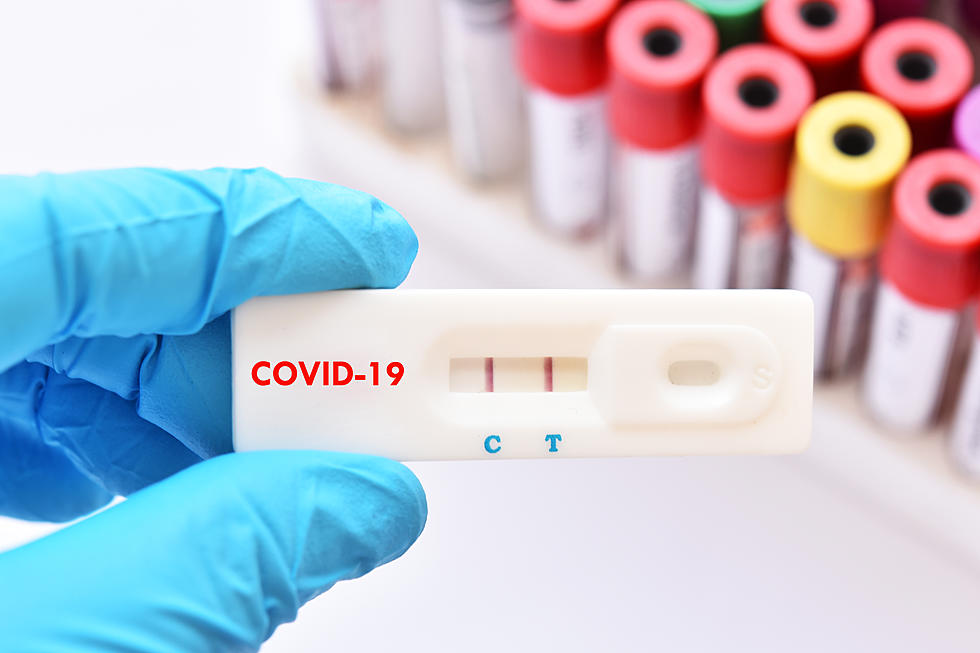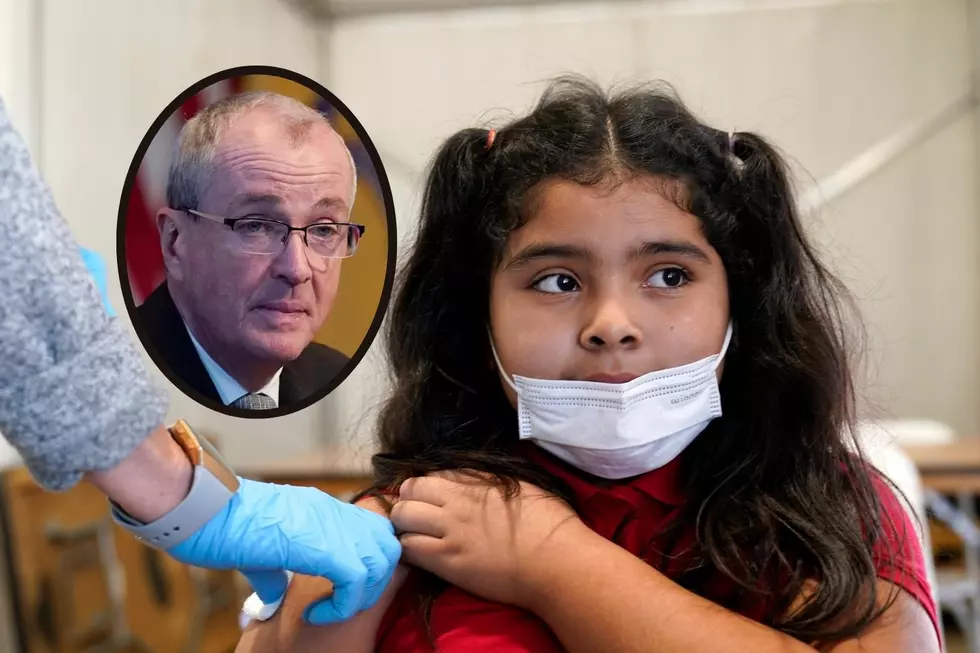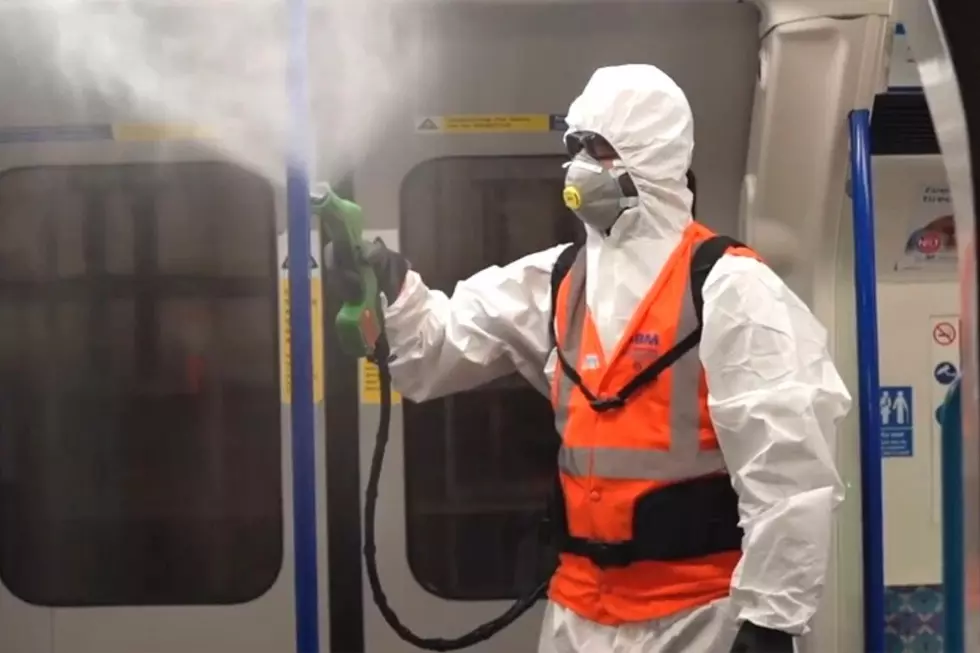
Here are some things you can do to immediately relieve Covid burnout and stress

Regardless of how you feel about restrictions, masks, rules, regulations, anything to do with Covid, the fact is there continues to be a pandemic front and center in our lives and it's brought on a range and rollercoaster of emotions for over a year now, giving us our own daily battles, mentally.
Covid burnout is a real feeling, but how do we separate ourselves, even momentarily, from a sometimes grim and frustrating reality?

There is no one size fits all solution for everyone because everyone has different reactions to things, processes everything a little different and has different things on their plate each day.
Dr. Ramon Solhkhah, the Chair of Psychiatry at Jersey Shore University Medical Center, though is providing us with some ways to handle the day to day stress and anxiety and burnout during the pandemic.
It starts with quarantine and isolation, a combination many of us didn't think about prior to the pandemic.
As the rate of transmission begins heading in a better direction and summer approaches, people are hopeful and can see that the end of the pandemic is in light, but much like the mirror in your car, it looks close than it actually is and that's not to say it's so far away we can't see it.
"When folks are in isolation, there's typically what we call the third-quarter phenomenon so as people are sort of through most of it and we start seeing the light at the end of the tunnel, that's when people are actually at their most vulnerable so if you think of a sports analogy, it's when teams crash in that 4th quarter, it's sort of the same thing here, you think the game is done and over but the reality is that you still have aways to go here and so you need to have you're resources and marshal them," Dr. Solhkhah tells Townsquare Media News. "We know from those experiences that people get irritable, short fused with each other and I don't know about everyone else but Zoom fatigue and dealing with Zoom meeting after Zoom meeting has certainly fried most of us and that lack of human interaction. Humans are social beings and we need the non-verbal communication, we need the body language in order to really feel comfortable."
The frustration over a lack of transparency from Governor Murphy and his administration, not knowing what is ahead, not knowing when everything will open back up, when you can return to work, when the kids can go back to school, losing a job, getting laid off, trying to find work, frustrated or anxious over having to wear a mask and follow new rules.....all this and more are things that people are feeling and reacting to right now and it's bringing on all the emotions from anger and disbelief to sadness, depression and hesitancy to do anything.
"Most of us are used to going out in the world, so we leave our house, we commute, we get to work, we have our work friends but then we get to leave them and go home so we don't have to deal with the same group of people for 24/7/365, which for many of us now we're living and working with our spouses, significant others, we've got to in between become teachers and help homeschool kids and all of that stress is just really compounding," Dr. Solhkhah said. "People are truly stressed and we are seeing in our mental health services, even in the worst of Covid, that our numbers remain pretty consistent and for about the past 6-months we've really seen a dramatic increase in presentation of people in crisis, in our emergency rooms, in our out-patient services...just being more stressed, more depressed, more anxious so I think it's something that we all have to acknowledge exists and then get help."
Admitting you have all this stress is the first part, now we learn how to cope with it and find inner peace.
Dr. Solhkhah says first, keep up your routines, from when you get up to when you go to sleep, making sure you shower and eat regular and healthy, being dressed for work even if doing so remotely, having a dedicated workspace at home outside of the dining room table just for you and then just doing something fun.
"Whatever your hobbies are and your recreational activities are, you should absolutely be doing so and making sure you're spending time listening to music, reading," Dr. Solhkhah said.
Getting out and walking and doing a physical activity can also help boost your mood and lift you up, even being socially distant and wearing a mask.
You can follow Vin Ebenau on Twitter and Instagram and email news tips to vin.ebenau@townsquaremedia.com.
12 Times Being High Cost NJ Residents & Towns
Have You Seen Them? Ocean County's Most Wanted
Have You Seen Them? Monmouth County's Most Wanted
NEXT: 10 Jersey Shore School Districts Losing Millions From S2 School Funding Formula
Ten times drunk driving changed New Jersey Lives Forever
Strange NJ Laws You've Never Heard Of
Marijuana legal in NJ: How do the laws work?
NEXT: INSIDE JOE PESCI'S HILARIOUSLY OVER-THE-TOP LAVALLETTE MANSION
LOOK: GO INSIDE JON BON JOVI'S $20 MILLION MIDDLETOWN MANSION
Go Inside Mike 'The Situation's' NJ Mansion
TAKE A TOUR OF JON BON JOVI'S NEW $43 MILLION PALM BEACH MANSION
Jersey Shore Nor'easter 2021 Listener Pictures
LOOK INSIDE: The Most Expensive House in Rumson
Peek Inside Snooki's New Toms River Waterfront Home
LOOK: See the iconic cars that debuted the year you were born
NEXT: The 100 Best Places to Live on the East Coast
More From Beach Radio










